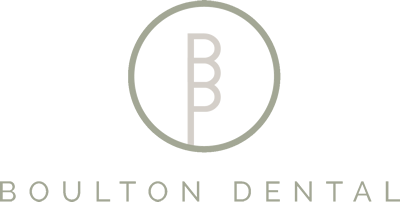
03 Aug I brush my teeth every day, but you’re telling me I have decay!?!
Dr. Amanda Chruszcz discusses the 5 most common reasons why?
Sometimes patients are shocked when we find decay in their teeth, despite their brushing efforts.
But there are some reasons why decay can still occur.
To understand these best, it is first important to understand how decay forms in teeth. Tooth decay occurs when the bacteria present in our saliva use the sugars in our diet as their fuel source, breaking them down to form acids, which is what decays the tooth. The tooth surface has a limited ability to resist these acids, especially when it persists overtime.
In a nutshell- bacteria + sugars + time = decay
Colgate provides great images of this process, available here: https://www.colgateprofessional.com.au/education/patient-education/topics/caries/how-a-tooth-decays
5 Factors which influence this equation include:
1. Enamel Quality
There are some enamel conditions, which predispose people to develop decay quicker than others. For these people, the time factor may be much shorter before decay occurs. We can help you to identify if this risk factor applies to you.
2. Brushing Technique
We generally learn to brush in our childhood, and switch onto to auto pilot- for some, this means there are areas of the mouth which are routinely mistakenly missed!
Also due to crowded teeth, or previous fillings/crowns/dentures, there may be some areas in your mouth more prone to plaque build up. When you visit our dentists and hygienists, we use a disclosing agent which highlights these areas easily for you. We can also assist you in finding the best technique and tools for cleaning your teeth.
Check out the Australian Dental Associations detailed instruction on brushing for further information. https://www.ada.org.au/Your-Dental-Health/Younger-Adults-18-30/brushing
3. Using an Inappropriate Toothpaste
For the majority of people, a fluoride containing toothpaste is the best option. Fluoride particles strengthen the enamel, increasing the time factor before decay occurs. Fluoride works topically- meaning it needs to be on the tooth surface for a period of time for this strengthening to occur. We therefore recommend that after brushing you spit and don’t rinse, leaving a small residue of toothpaste around! There are many fluoride options available now, including sensitive, natural, and even with no flavour/SLS. Our team of dentists and hygienists can help guide you on the best choice for you. You can find some of these options at www.shopbypaulbeathdental.com or visit us at 202 Glebe road Merewether New South Wales.
4. Not cleaning in between the teeth
Our toothbrushes can only reach so many areas. In between the teeth, it is important to floss or use an interdental brush regularly. These are areas often not clearly visible, but where significant decay can form. We can use low dose dental x-rays to identify small areas of decay before they progress.
The Australian Dental Association has a great resource on flossing available here: https://www.ada.org.au/Your-Dental-Health/Younger-Adults-18-30/flossing
5. Frequent Snacking
Sometimes, brushing and cleaning techniques may be correct, but our diet may be the cause. Of course, a diet high in sugar contributes to decay rates, but so can frequent snacking. Regular snacking does not give the mouth time to reset after an acid attack and provides the bacteria with a steady stream of fuel to continue their decay process. Sipping plenty of water, sticking to meal times rather than continual snacking, and choosing low sugar options are a great way to combat this factor.
There may be other causes for decay rates unique to the individual patient as well, including medications, saliva levels and dietary requirements.
Ultimately, if you visit us regularly, we can help you to identify these higher risk areas or lifestyle aspects, which may apply to you.
Your team here at Boulton Dental Merewether, risk rates you for decay and gum disease at your appointment. To visit your dentist in Newcastle for an assessment, phone our lovely front desk on 02 4961 6300 or direct book online at www.boultondental.com.au
Dr. Amanda Chruszcz
BDENT BOH

Sorry, the comment form is closed at this time.